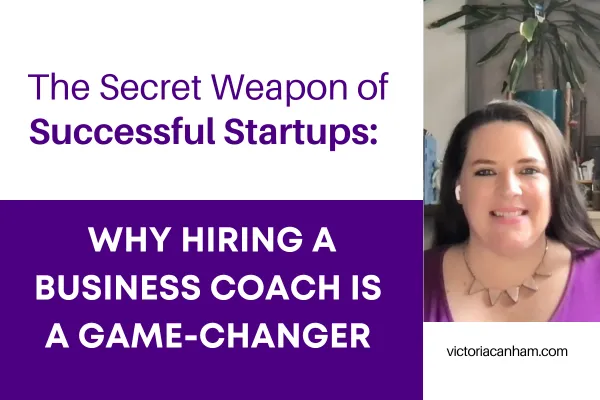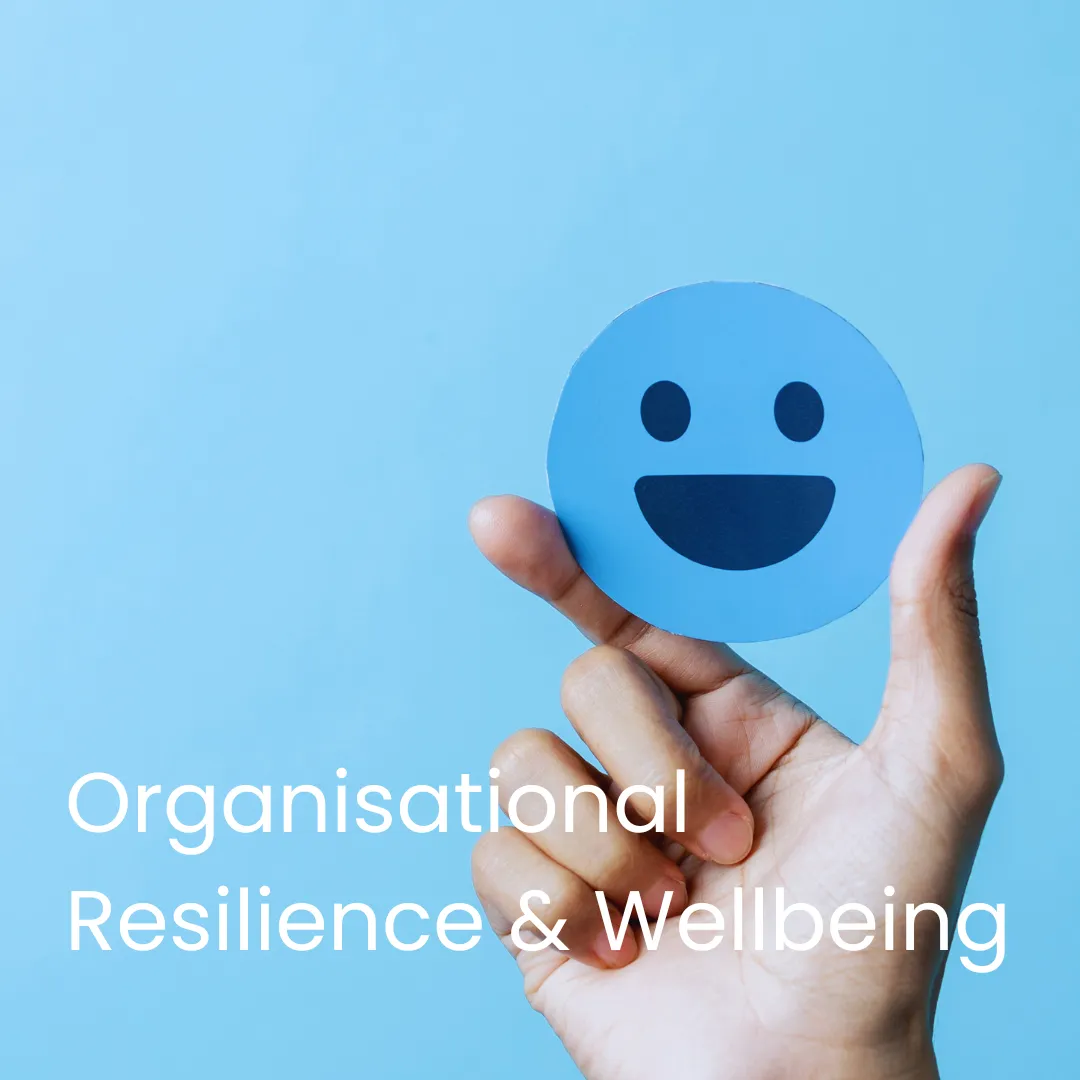This Is Why They Leave Video Series
Employee Experience (EX) videos on why your employees leave

Welcome to the "This Is Why They Leave" series—an unvarnished, direct, and powerful look at the 30 hard truths leaders often avoid.
For too long, the narrative around employee turnover has been filled with excuses and corporate platitudes. We’re told people leave for more money, but that’s rarely the whole story.
In this series, we pull back the curtain on the real, unfiltered truths. Each video is a short, hard-hitting exploration of the specific, often painful, reasons that cause your best people to walk out the door, from cowardly managers and toxic cultures to passive-aggressive leadership and broken promises.
This isn't just about identifying the problems; it's about providing the insights you need to stop the cycle. These truths are a direct call to action, offering leaders the profound self-awareness and understanding required to build a culture where people don’t just stay—they thrive.
This Is Why They Leave - Truth 1: It's Not About the Money
Everyone says people leave for more money. As an expert in employee experience, I can tell you it's almost never the root cause. This reel uncovers the real reasons people walk out the door, and why they have nothing to do with their salary.
This Is Why They Leave - Truth 2: Their Boss Sucks
This isn't just a catchy phrase; it's a stark reality. Your managers are the linchpin of your employee experience. Neglect their development, and you'll pay the price in turnover. Is it time to invest in your leadership layer?
This Is Why They Leave - Truth 3: Their ideas are always ignored
It's soul-crushing to put your energy and creativity into a suggestion, only for it to be met with silence. When people feel unheard, they eventually stop speaking up, and that's a huge loss for the business.
This Is Why They Leave - Truth 4: Leadership isn't leading by example
It's soul-crushing to put your energy and creativity into a suggestion, only for it to be met with silence. When people feel unheard, they eventually stop speaking up, and that's a huge loss for the business.
This Is Why They Leave - Truth 5: Burnout Is The New Normal
Burnout is a silent epidemic, and it's not just about feeling tired. It's about a culture that normalises pushing past our limits until we break. This is the real cost of a relentless pace on your people and your business.
This Is Why They Leave - Truth 6: My reward for doing my job well is more work
This meme perfectly captures a frustrating reality: the 'reward' for being a high performer is often just... more work. If you want to keep your top talent, celebrate their wins with growth and reward, not just an expanded to-do list.
This Is Why They Leave - Truth 7: Management is afraid of tough conversations
The discomfort of confronting an issue pales in comparison to the damage caused by ignoring it. When leaders shy away from candour, it fosters resentment, lowers morale, and lets small problems explode.
This Is Why They Leave - Truth 8: No one cares about their well-being
"Just grin and bear it" and "stress is part of the job" are the biggest lies we tell ourselves at work. When companies don't genuinely prioritise well-being, they're telling their employees, "We care more about your output than your health."
This Is Why They Leave - Truth 9: The perks don't make up for the problems
Ping-pong tables and free snacks won't fix a toxic manager or an impossible workload. People aren't stupid. They see right through the veneer and would rather have psychological safety over free pizza.
This Is Why They Leave - Truth 10: People Don't Want a Boss. They Want a Guide.
True leadership isn't about dictating; it's about empowering. Being a boss is about control, but being a guide is about influence, development, and building a team that's confident and capable.
This Is Why They Leave - Truth 11: "We're a family"... Except When It Matters
"We're a family here!"—a phrase often used, and rarely backed up. When that façade crumbles at the first sign of inconvenience—like needing sick leave or asking for fair pay—it creates deep resentment and destroys trust. Be a professional, respectful company, not a fake family.
This Is Why They Leave - Truth 12: Loyalty is Not a Two-way Street
You want long-term commitment for a 2% pay bump and a "World's Best Employee" mug? Good luck. Loyalty is earned through genuine investment in people's development, compensation, and well-being.
This Is Why They Leave - Truth 13: One Bad Manager Can Ruin Your Career
One great manager can launch your career. One bad one can ruin it.
Managers are the daily reality of the employee experience, and investing in their development isn't optional; it's essential for retention and success.
This Is Why They Leave - Truth 14:Your Company Values Are a Work of Fiction.
Those posters on the wall? The ones about 'integrity' and 'respect'? Your people are watching to see if your actions actually back them up. When they don't, trust is completely eroded and your employees feel like they are living a lie.
This Is Why They Leave - Truth 15: You Hired Brilliant People, Then Managed the Brilliance Out of Them
A tough truth for leaders: you hired brilliant people, then managed the brilliance out of them. The very things you hired them for—their autonomy and creativity—you’ve now smothered with bureaucracy and micromanagement.
This Is Why They Leave - Truth 16: The Job Description Was a Lie
When the job description is a lie, you create a complete breach of trust from day one. Employees were hired based on a promise, and when that promise isn't honoured, it's the fastest way to drive them to a competitor.
This Is Why They Leave - Truth 17: The Rules Only Apply to Some of You.
Inconsistency in policies and treatment is a killer of morale. It breeds resentment and creates a culture where people feel like their hard work and dedication don't matter as much as someone else's.
This Is Why They Leave - Truth 18: Meetings That Could Have Been an Email
How many hours a week are you spending in pointless meetings? It's not just a waste of time, it's a soul-crushing experience that shows a fundamental lack of respect for your team's time and sanity.
This Is Why They Leave - Truth 19: Lack of Clarity in Goals and Expectations
"Working hard, but not knowing what you're working towards." It's the fastest way to burnout. Your job as a leader isn't to just provide tasks; it's to provide purpose and a clear finish line.
This Is Why They Leave - Truth 20: Your Employees Don't Want Beer Fridays. They Want to Not Cry on Sunday Nights
The problem with 'Beer Fridays' isn't the beer itself, it's when it's used as a superficial perk to mask a broken culture. High-performing teams want boundaries, respect, and psychological safety. This is how you build a loyal team, not with performative, exclusionary events.
This Is Why They Leave - Truth 21: Their onboarding experience was a scavenger hunt without a map.
"Here's your computer... good luck!"
How often have you seen a brilliant new hire get thrown in at the deep end because of a chaotic onboarding process? A poor start can derail a new employee's potential and make them question their decision to join your company.
This isn't just about first impressions. A bad onboarding experience sets the tone for the entire employee journey and sends a clear message: we aren't prepared for you.
How are you making sure your new starters feel supported, not lost, from day one?
This Is Why They Leave - Truth 22: Your Feedback Loop Is Broken
That annual review where you give a platitude and they give a platitude? That’s not a feedback loop.
Your best people want to grow and get better. When you don't give them real, actionable feedback, you're not helping them. You're just setting them up to leave.
What does meaningful feedback look like in your workplace?
This Is Why They Leave - Truth 23: Companies not paying a living wage but expecting high performance and maximum dedication.
You cannot expect world-class performance when you are paying a minimum wage investment.
The way a company compensates its people is a direct reflection of its values—not what's written on a poster. A low wage with high expectations is a fast track to disengagement and resentment. It’s a complete strategic failure.
What's the biggest disconnect you've seen between pay and expectations?
This Is Why They Leave - Truth 24: Bullying at Work Is a Leadership Failure
Bullying at work isn't a "personal conflict"—it's a leadership failure.
When leaders allow bullying to go unchecked, it sends a clear message that psychological safety is not a priority. This creates a toxic environment that drives away top talent and erodes trust. You cannot have a high-performing team in an unsafe environment.
Have you ever witnessed or experienced bullying at work?
This Is Why They Leave - Truth 25: Senior Manager Ego Clashes
Leaders, your internal ego clashes are not just "disagreements." They are a strategic failure that is costing you your best people.
When you allow professional disagreements to devolve into chaos, you create an environment of anxiety and mixed messages. Your team is forced to guess, and their productivity and morale will plummet. This is a direct failure of leadership to manage its own emotional intelligence.
What's the cost of ego in your workplace?
I love Gordon Ramsay's shows as much as the next person, but his television persona is not a sustainable leadership model. The most impactful leaders are not always the loudest. They are the ones who listen, observe, and protect their team.
Leadership isn’t just about making your team feel heard; it’s about removing obstacles, shielding them from the politics, and mentoring them to succeed.
What's one of your superpowers as a quiet leader?
This Is Why They Leave - Truth 27: The Cowardice of Bad Managers
I’m going to be direct. When a manager fails to communicate crucial information—especially during a takeover—it isn't just a failure of communication; it’s a failure of courage.
Your team relies on you to be their shield. When you stand by as they are blindsided by new policies and disciplinary action, you are betraying their trust. The mark of a true leader isn’t in their title; it’s in their willingness to fall on their sword to protect their team.
What's the worst betrayal you've seen from a manager?
This Is Why They Leave - Truth 28: Transparency is a buzzword, not a practice.
"We believe in open communication." "Radical transparency." These phrases are on every company deck, but how many of them are actually true?
A lack of transparency breeds speculation and erodes trust, leading to higher turnover and a disengaged workforce. A leader's actions—or lack of them—speak far louder than any mission statement.
How transparent is your company, really?
This Is Why They Leave - Truth 29: Promotions for Tenure, Not for Talent.
You cannot build a high-performing team by promoting for tenure, not for talent. Promotions go to those who outperform, not those who outlast. This isn't Survivor.
This single policy is a massive mistake. It frustrates rising stars who see no path for growth and creates a cascade of incompetent leaders who were never ready for the job.
Have you ever seen a promotion that just didn't make sense?
This Is Why They Leave - Truth 30: The Finale
For the past 30 days, we've explored the uncomfortable truths of why people leave their jobs. Today, for the final installment, it all culminates in one undeniable reality: They don't leave companies; they leave YOU.
Every instance of burnout, every ignored idea, every cowardly management decision, every ego clash, every lie—it all traces back to leadership. This isn't about blame; it's about accountability. Your best people are not leaving your brand or your product; they are leaving your leadership.
Are you ready to truly face that truth and build a culture where people want to stay and thrive? If so, let's talk.
PERFORMANCE AND GOAL ACHIEVEMENT BLOGS
Focus on strategies, coaching insights, and tools to overcome career plateaus and achieve measurable growth.

The Secret Weapon of Successful Startups: Business Coaching
In the fast-paced and ever-evolving world of startups, entrepreneurs are constantly searching for that secret weapon that will set them apart from the competition and propel their businesses to success. Enter the business coach - the unsung hero behind many of today's thriving startups.
Hiring a business coach has become a game-changer for entrepreneurs looking to navigate the challenges and complexities of starting and scaling a business. These coaches bring a wealth of knowledge, experience, and expertise to the table, helping startups develop a clear vision, set meaningful goals, and create actionable strategies to achieve them.
But it doesn't stop there. A business coach also provides invaluable accountability, support, and guidance, acting as a trusted advisor and sounding board for crucial decision-making. In this article, we will explore the reasons why hiring a business coach can be the secret weapon that takes your startup to new heights and how their unique skill set can make all the difference in your entrepreneurial journey.
The role of a business coach
A business coach plays a multifaceted role in the success of a startup. They bring a fresh perspective to the table, helping entrepreneurs see their business from a different angle and identify untapped opportunities.
A business coach acts as a mentor, providing guidance based on their own experiences and lessons learned. They act as a sounding board, listening to and challenging the entrepreneur's ideas, and helping them refine their vision and strategy.
Additionally, a business coach provides accountability, holding the entrepreneur responsible for their actions and goals. They provide support during tough times, offering encouragement and motivation to keep pushing forward. The role of a business coach is to empower the entrepreneur with the knowledge, skills, and confidence to make informed decisions and drive their startup towards success.
Benefits of hiring a business coach
The benefits of hiring a business coach are numerous and far-reaching. One of the key advantages is the accelerated learning curve that comes with having a coach by your side. A business coach brings a wealth of knowledge and experience to the table, which can be invaluable for startups looking to avoid common pitfalls and make informed decisions.
They can help entrepreneurs develop the necessary skills to navigate challenges and seize opportunities. Additionally, a business coach provides accountability and support, helping entrepreneurs stay focused and motivated. They act as a sounding board, providing objective feedback and helping entrepreneurs see things from a different perspective.
A business coach can also provide access to a network of contacts and resources, opening doors to new partnerships and opportunities. Overall, hiring a business coach can provide startups with the guidance, support, and expertise needed to overcome obstacles and achieve their goals.
How to find the right business coach for your startup
Finding the right business coach for your startup is crucial for maximising the benefits of the coaching relationship. Start by identifying your specific needs and goals. Do you need help with strategic planning, marketing, or operations?
Once you have a clear idea of what you're looking for, do your research and ask for recommendations from trusted sources. Look for coaches who have experience working with startups in your industry or niche.
Schedule initial consultations with potential coaches to assess their compatibility and communication style. Ask about their coaching approach, methodologies, and success stories. Trust your instincts and choose a coach who aligns with your values and vision.
Remember, the right business coach can make all the difference in your entrepreneurial journey.
Working with a business coach - what to expect
Working with a business coach is a collaborative process that requires open communication, trust, and commitment. At the outset, you and your coach will define clear goals and objectives for the coaching engagement. These goals will serve as a roadmap for your coaching sessions and help measure progress. During coaching sessions, your coach will ask thought-provoking questions, challenge your assumptions, and help you uncover new insights. They will provide guidance, support, and accountability to keep you on track towards your goals.
It's important to be open-minded, receptive to feedback, and willing to take action. The coaching relationship is built on trust, so it's crucial to be transparent and honest with your coach. Remember, the more you put into the coaching process, the more you'll get out of it.
Common misconceptions about business coaching
There are several misconceptions about business coaching that can hinder entrepreneurs from seeking the help they need. One common misconception is that only struggling businesses need a coach. In reality, even successful startups can benefit from the guidance and support of a business coach.
Another misconception is that business coaching is expensive and only accessible to large corporations. While some coaches may charge premium rates, some coaches offer their services at more affordable rates, especially for startups.
Additionally, some entrepreneurs believe that they can figure everything out on their own, without the help of a coach. While it's true that entrepreneurs are resourceful, a business coach can provide valuable insights, expertise, and support that can accelerate growth and success.
The cost of hiring a business coach
The cost of hiring a business coach varies depending on factors such as their experience, expertise, and the scope of the coaching engagement. Some coaches charge an hourly rate, while others offer package deals or monthly retainers. It's important to consider the return on investment when evaluating the cost of hiring a business coach.
The insights, guidance, and support provided by a coach can help startups avoid costly mistakes and achieve their goals faster. Think of it as an investment in your business's future success. Additionally, some coaches offer flexible payment options or scholarships for startups with limited budgets. Don't let cost be a barrier to accessing the valuable support a business coach can provide.
Business coaching vs. other forms of support for startups
While there are various forms of support available for startups, business coaching offers unique advantages. Unlike consulting, which often provides specific solutions to specific problems, business coaching focuses on empowering entrepreneurs to find their own solutions.
Business coaching is a collaborative and personalised approach that takes into account the unique challenges and goals of each startup.
Mentoring, on the other hand, is often focused on sharing experiences and providing guidance based on personal knowledge. While mentoring can be valuable, a business coach brings a broader perspective and can provide objective feedback. Additionally, business coaching offers ongoing support and accountability, helping entrepreneurs stay focused and motivated throughout their entrepreneurial journey.
Conclusion
Hiring a business coach can be the secret weapon that takes your startup to new heights. These unsung heroes bring a wealth of knowledge, experience, and expertise to the table, helping entrepreneurs navigate the challenges and complexities of starting and scaling a business. From developing a clear vision and setting meaningful goals to providing accountability, support, and guidance, a business coach can make all the difference in your entrepreneurial journey.
So, if you're looking for that extra edge to set your startup apart from the competition, consider hiring a business coach and unlock the full potential of your business. Book a call now to discuss your business coaching requirements.
Signup to receive weekly performance and employee experience secrets
Signup to receive weekly performance and wellbeing secrets
© Copyright 2026 Victoria Canham Coaching | Website built by Me on FEA Create (aff.)
Performance Coaching Reading, London, Berkshire, Oxford | St George's Road, Reading, Berkshire, United Kingdom, RG30 2RL | +44 7377 527 529 | [email protected] Open Monday to Friday 9 am until 5 pm





